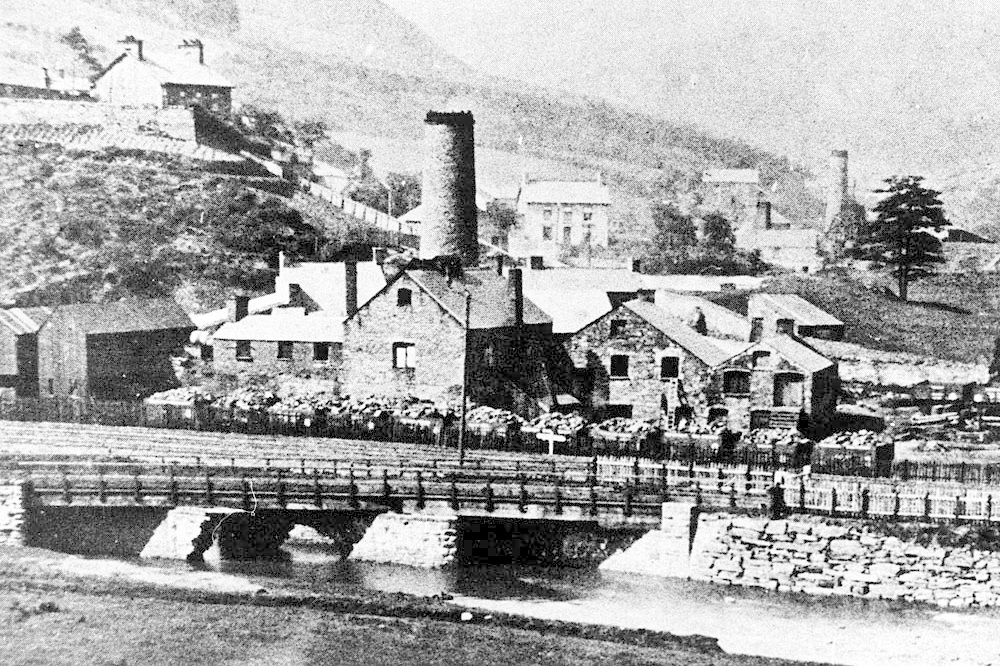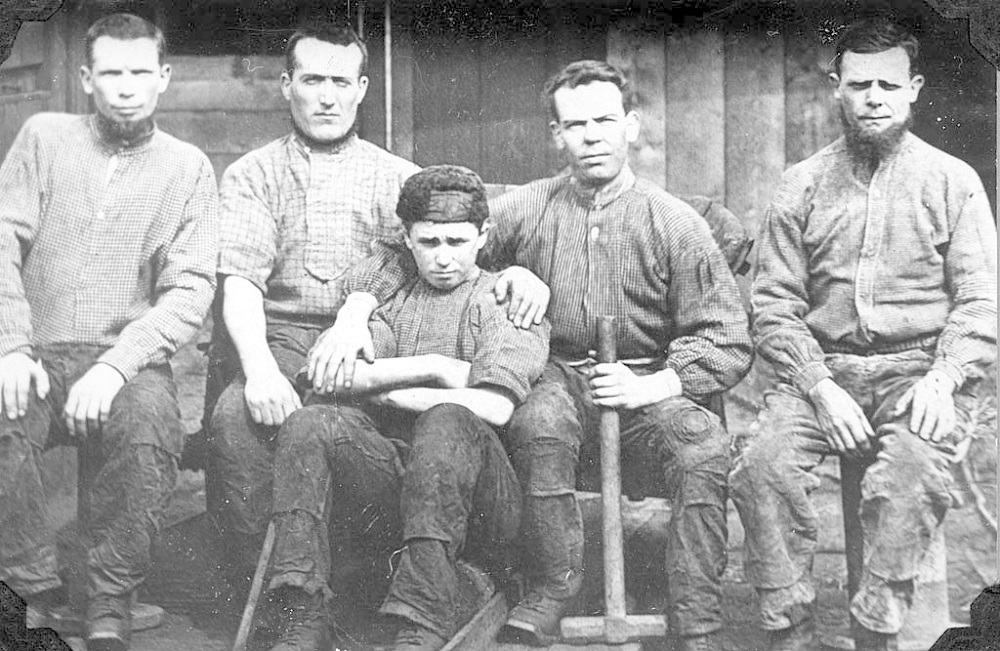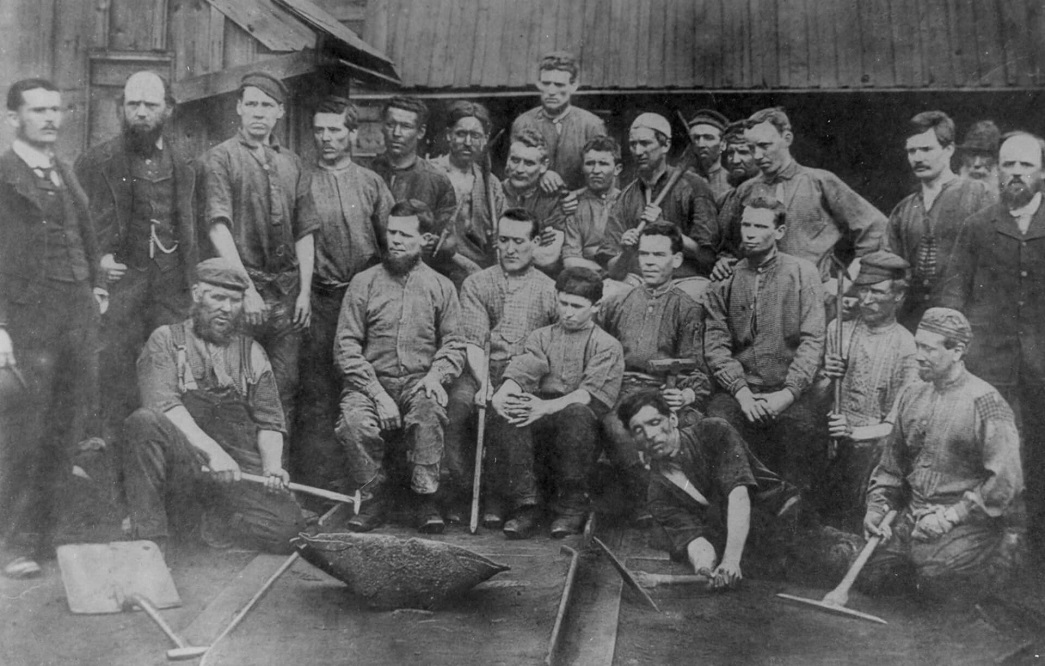Tynewydd Colliery Disaster: The horror and the heroism

Sarah Morgan Jones
On this day 146 years ago, a terrible mining disaster claimed the lives of four men, a 13-year-old boy and left more trapped underground for many days at the Tynewydd Colliery near Porth.
A detailed account of the disaster can be found on the Welsh Coal Mines blog site, describing the tragedy and horror those men faced as well as the ingenuity and determination of those who struggled to survive and their brave rescuers.
The mine was owned at the time by the Troedyrhiw Coal Company and according to the mines list of 1896, employed 118 colliers. The mine had been sunk in 1852 to work No.2 and No.3 Rhondda seams, and at the time of the disaster, the No.3 seam workings at Cymmer Colliery had been abandoned due to flooding.
To protect miners at the No.2 seam, a boundary of unworked ground was left between the two mines, but on the morning of 11 April 1877, the flood waters broke through this boundary and rushed into the Tynewydd workings.
In that first rush, two men – John Hughes and his son William who was 18 – were drowned, while five more men of the fourteen, coming to the end of their shift, managed to run ahead and reach higher ground.
They found themselves trapped at the peak of an underground incline with water rising on both sides.
Working in a pocket of air created by the rising waters, the men set about digging a tunnel towards a nearby roadway, burrowing through the day and night until their picks were heard by rescuers who began digging to meet them.
In a burst of hope and enthusiasm, one of the miners – 28-year-old William Morgan – set about breaking through the barrier between him, his workmates and freedom, but was subsequently killed when the blast of compressed air forced him through the hole he had created.
His four workmates were then rescued leading to hope for the survival of other shift workers in different parts of the mine.
Drowned
Closer to the shaft itself, rescuers were responding to air bubbles in the water and signal tapping from where they believed Edward Williams and 13-year-old Robert Rogers had been working. As they moved closer to the site, desperately digging a new shaft to reach them, the sounds diminished and disappeared.
When they broke through to the workings, Williams and Roberts had been overcome by the rising water and had drowned.
Rescuers then turned their attention to a higher area of the mine, known as Thomas Morgan’s Stall, in the hope of finding more survivors.
Four days after the initial blast, deep sea divers attempted to search the workings, but were thwarted in their efforts by strong water currents, abandoned drams and loose timber.
With the use of heavy-duty pumps, the rescuers spent the next two days trying to reduce water levels to a point where they could dig a tunnel to access the stall, with four 3 hour shifts of four men, working around the clock until, a week after the initial disaster, they heard sounds of life at last through the coal barrier.
Spurred on by this fresh hope, they upped their efforts and were eventually able to make contact with four men and a young boy who were trapped on a ledge beyond the barrier.
This group had exhausted their rations and had tried to sustain themselves by eating the grease from their candles, and the oldest of the group, one Dafydd Jenkins, a chapel man, had led them in singing hymns to keep their spirits up.
The young boy, David Hughes, distraught and afraid, frequently crying for his mother, was unaware as yet that his father and older brother had already lost their lives.

Dangerous gases
In many ways what follows the discovery of these trapped miners represents the most remarkable bravery and on the spot invention within the whole saga.
As they drilled through the barrier to establish its depth and to attempt to send food through to the captives, the rescue team realised that the escape of trapped air was causing the water levels to rise and for dangerous gases to escape.
With the risk of imminent explosion, the team had to plug the hole and retreat until the next day, when the gases cleared and conditions improved.
Taking on board the earlier tragic death of William Morgan, they set up hefty air doors to contain any explosion resulting from breaking through the barrier. The door closest to the barrier was just a yard away meaning there was barely room to swing a pick, which the leader of the four-man shift, Isaac Pride, proceeded to do in complete darkness.
Once he had broken through and been blown back against the air door by the escaping air, his shift mate Abraham Dodd came forward and they were able to reach the five survivors, who after 9 days underground, were unable to even stand.
Pride made a bridge to the ledge across a channel of rising floodwater with his own body and Dodd dragged the survivors across him to the hole and subsequently, finally, out to safety.

Heroes
Each man involved in what is considered one of the most exceptional mine rescues in history was seen as a hero. Three of the rescuers, Isaac Pride, John Howell and Daniel Thomas were awarded the Albert Medal First Class for their part in the rescue, while another 21 men received the Albert Medal Second Class.
This was the first time the medal was awarded for gallantry underground. A full list of the men honoured can be found here.
According to the author of the Welsh Coal Mines blog, Abraham Dodd, whose contribution to the rescue was outstanding, was omitted from the honours list after he criticised the mine owners in a comment to the newspapers.
The men who died were father and son, John and William Hughes, William Morgan, Edward Williams and young Robert Rogers.
Support our Nation today
For the price of a cup of coffee a month you can help us create an independent, not-for-profit, national news service for the people of Wales, by the people of Wales.






A very moving story, perhaps the Welsh Government could consider a posttimous award for Abraham Dodd.
No,from today’s perspective Abby Dodd comes first in the roll of honour because he was refused a medal.